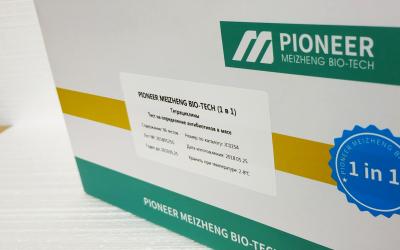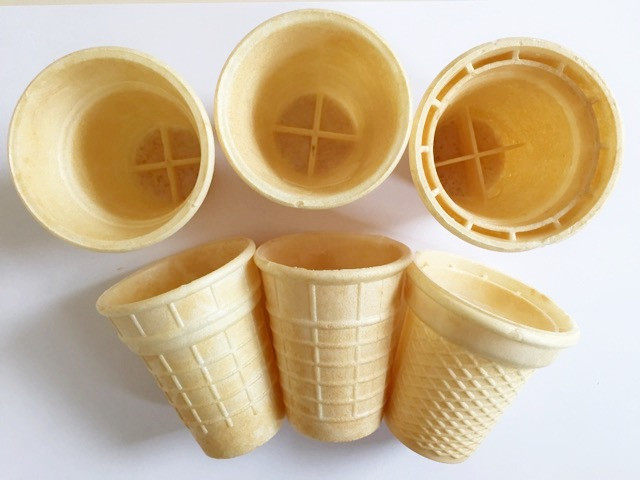Pakistan plans to increase halal meat exports

 Rapid tests PIONER 5 in 1 for the determination of sulfonamides, tylosin, tilmicosin, lincomycin, erythromycin, fluoroquinolones
Rapid tests PIONER 5 in 1 for the determination of sulfonamides, tylosin, tilmicosin, lincomycin, erythromycin, fluoroquinolones PIONEER MEIZHENG BIO-TECH (5 in 1) JC0726 / Rapid tests for determining the residual amount of Bacitracin, ansamycins, clindamycin, spiramycin, florfenicol in milk, whey
PIONEER MEIZHENG BIO-TECH (5 in 1) JC0726 / Rapid tests for determining the residual amount of Bacitracin, ansamycins, clindamycin, spiramycin, florfenicol in milk, whey
The Government of Pakistan has for the first time developed a livestock development policy in the country.
In the next decade, Pakistan plans to become a major halal food exporting country. The new livestock policy in the country has been approved and is ready for implementation in the coming years. Currently, the country's MEAT exports are worth $290 million, but the new policy aims to increase the EXPORT of halal meat, MILK, butter and other products in order to take a larger share of the global halal food market.
Food security, poverty reduction and increased national income are also among the key policy objectives. The share of agriculture in the country is 60.7%, and the economic growth is 11.6%, but the livestock industry has been characterized by instability in the past.
However, the current government has developed the first livestock policy to ensure food security, reduce poverty and increase national income, aiming to achieve double-digit growth in the livestock sector by 2025 with the help of the private sector.
According to the policy paper, more than 8 million farmers in Pakistan are employed in animal husbandry and the sector is growing at just 4% annually.
In addition, it is planned that modern organic animal husbandry will increase the number of farm animals, which currently stands at 120 million, and legislation will be passed to establish the Food Safety, Animal and Plant HEALTH Authority. Particular attention was paid to the allocation of additional funds for food safety research and modern laboratory systems.
The policy also proposes the establishment of model meat farms. It is proposed to give priority to trade in live animals and livestock products. In 2020, the share of livestock in the total volume of agriculture was 60.6%, and in GDP - 11.7%.
Read together with it:
- О самых распространенных причинах пожаров рассказали в МЧС2 октября, Минск. О самых распространенных причинах пожаров рассказал начальник главного управления надзора и профилактики МЧС Дмитрий Турчин на "Предупреждение чрезвычайных ситуаций в осенне-зимний период. Профилактика пожаров и гибели людей от них", которая прошла в БЕЛТА. "В республике наблюдается рост количества пожаров на 7,7%, и на 1......
- A Rostov broiler farmer was fined 750,000 rubles for selling meat contaminated with salmonella.The lawsuit against the poultry farm was filed by ROSSELKHOZNADZOR based on the results of an inspection that revealed serious violations of the production process. These included rust on metal structures, which compromised product quality, and unsanitary conditions that facilitated the growth of pathogenic microflora. A batch of Blagoyar pork legs with the backbone proved particularly dangerous, ...
- Фермер из Увата получил грант на строительство мясоперерабатывающего заводаПолученные средства будут направлены на строительство производственных мощностей для переработки мяса абердин-ангусов и овец породы дорпер. В планах фермерши - начать выпуск высококачественной говядины, баранины и полуфабрикатов, а также обеспечить местное население Уватского округа продукцией собственного производства с 2......
- Боливия экспортирует говядину на сумму 797 миллионов долларов и вводит новые цифровые сертификаты для внешней торговлиЭкспорт говядины из Боливии в период с 2021 по 2025 год достиг 797 миллионов долларов. Китай является основным рынком сбыта этого мяса, на который приходится 74% продаж, сообщила Карина Серрудо, генеральный директор Национального таможенного управления. Параллельно с этим ведомство включило сертификат безопасности экспортных пищевых продуктов для говядины в систему «Единое окно для внешней торговл...
- Поголовье свиней в Бразилии продолжает растиТакже наблюдался рост убоя свиней на 1,2%, достигнув рекордного уровня в 2024 году, хотя рост сектора замедлился. Экспорт свинины также достиг исторического максимума. По географическому распределению Толедо (штат Парана) сохранил лидерство по производству свинины среди 5487 муниципалитетов, где ведётся свиноводство, на долю которого приходится 2,2% от общего поголовья (95......
- Bloomberg узнал о плане G7 значительно ужесточить санкции против РоссииНовый пакет санкций будет включать меры, в частности, против энергетики, финансов и военной промышленности, а также крупнейших нефтяных компаний России. Разработку пакета G7 планирует завершить в октябре, выяснил BLOOMBERG Страны «Большой семерки» (G7) приближаются к соглашению о значительном ужесточении санкций в отношении России, сообщает агентство Bloomberg со ссылкой на проект заявления. «Мы с...

























































